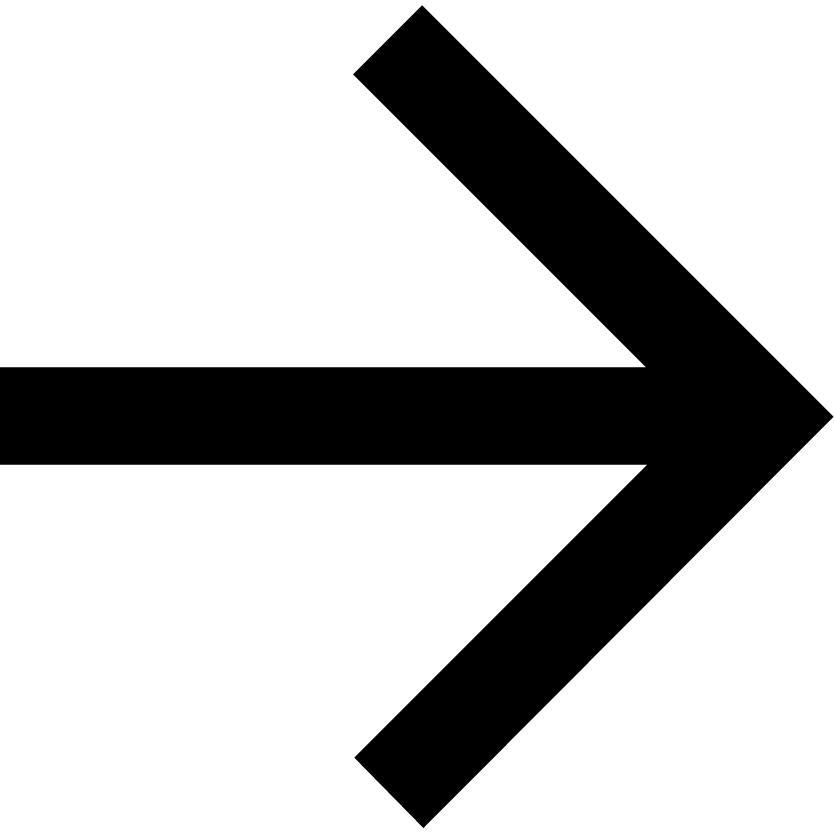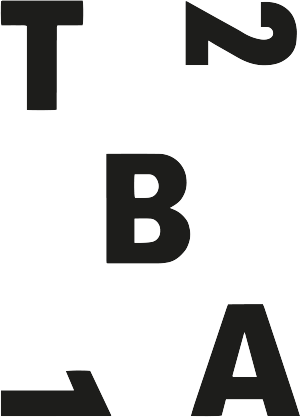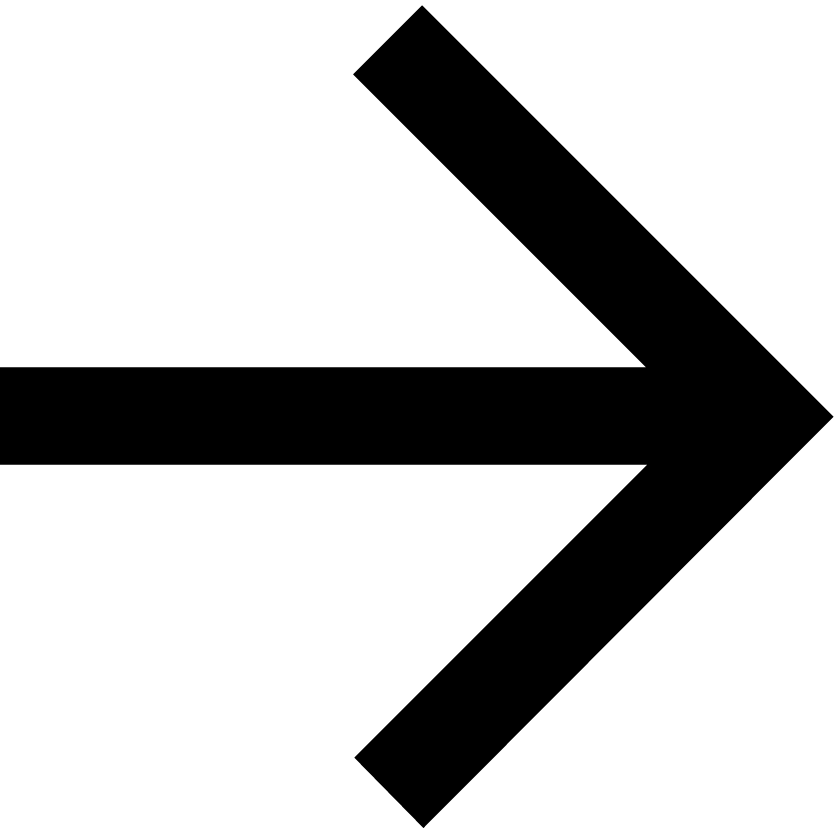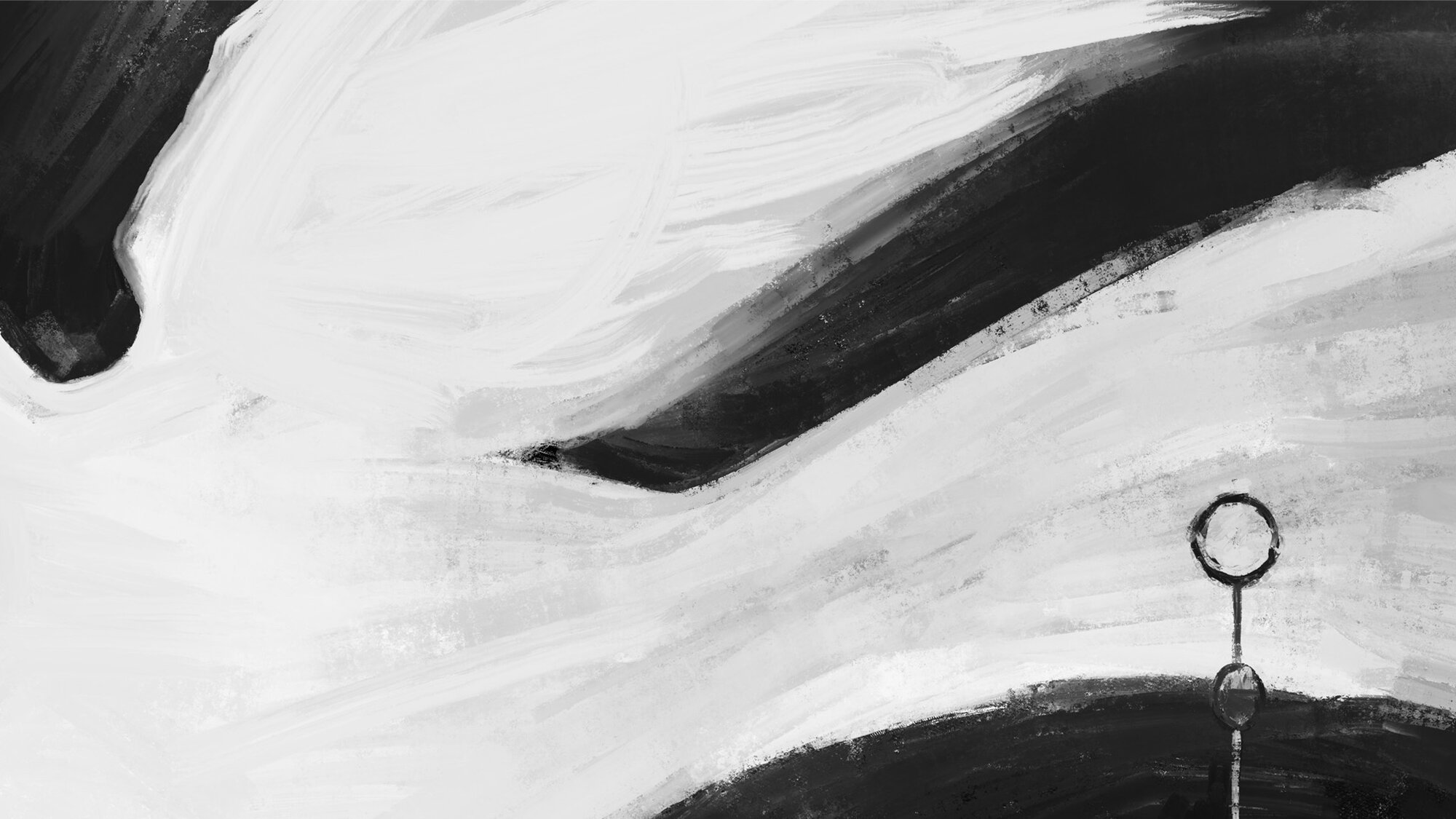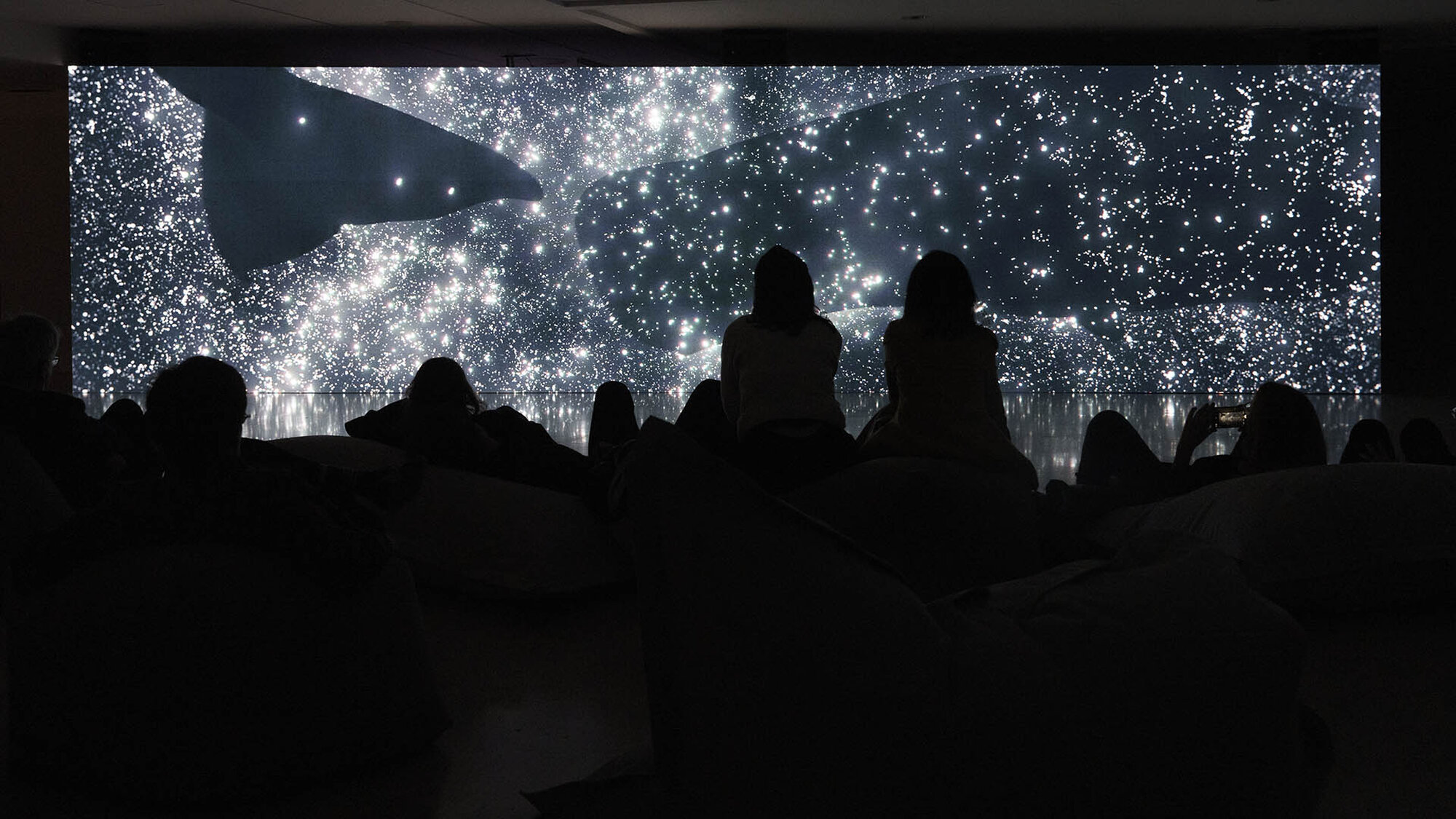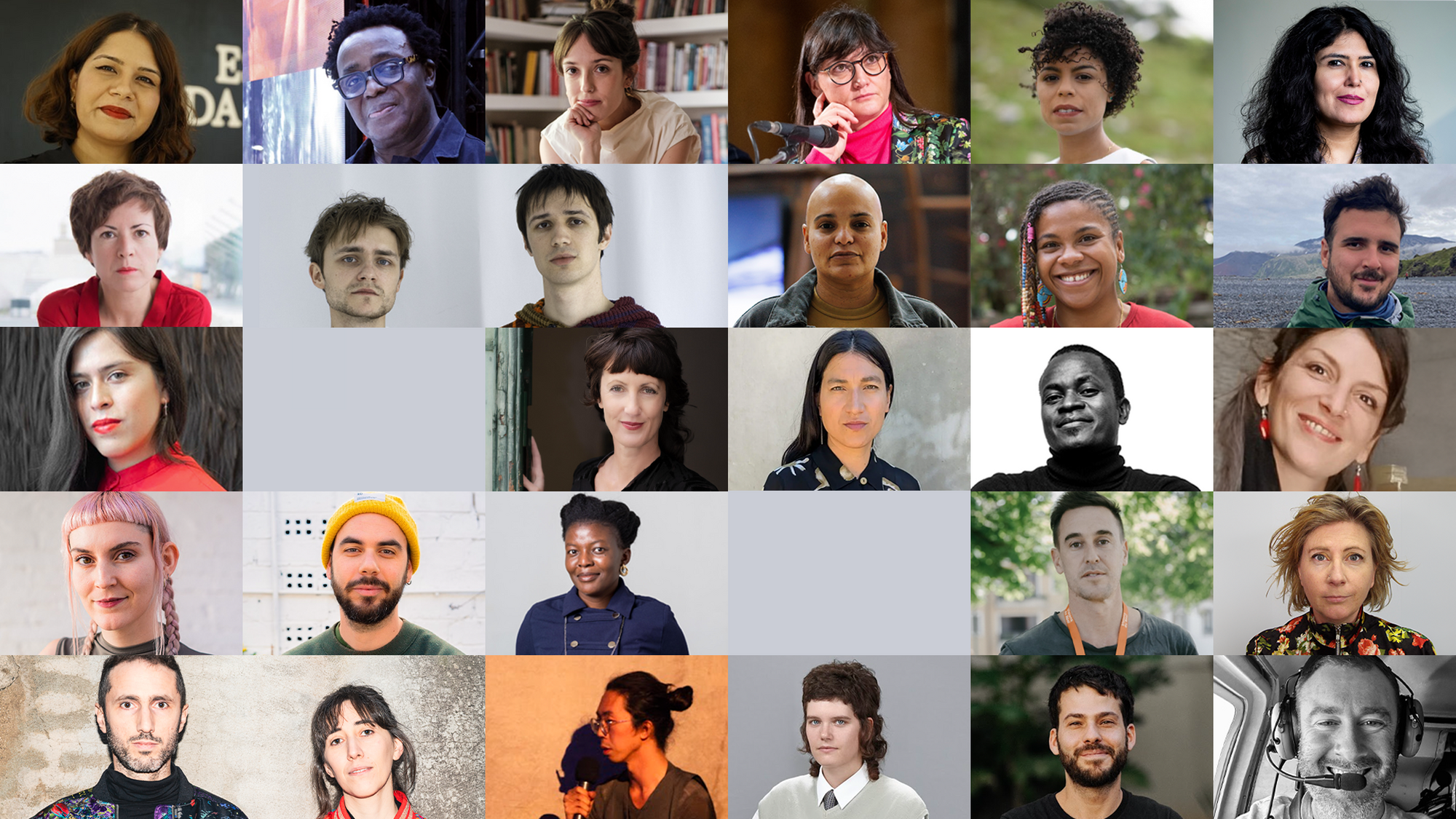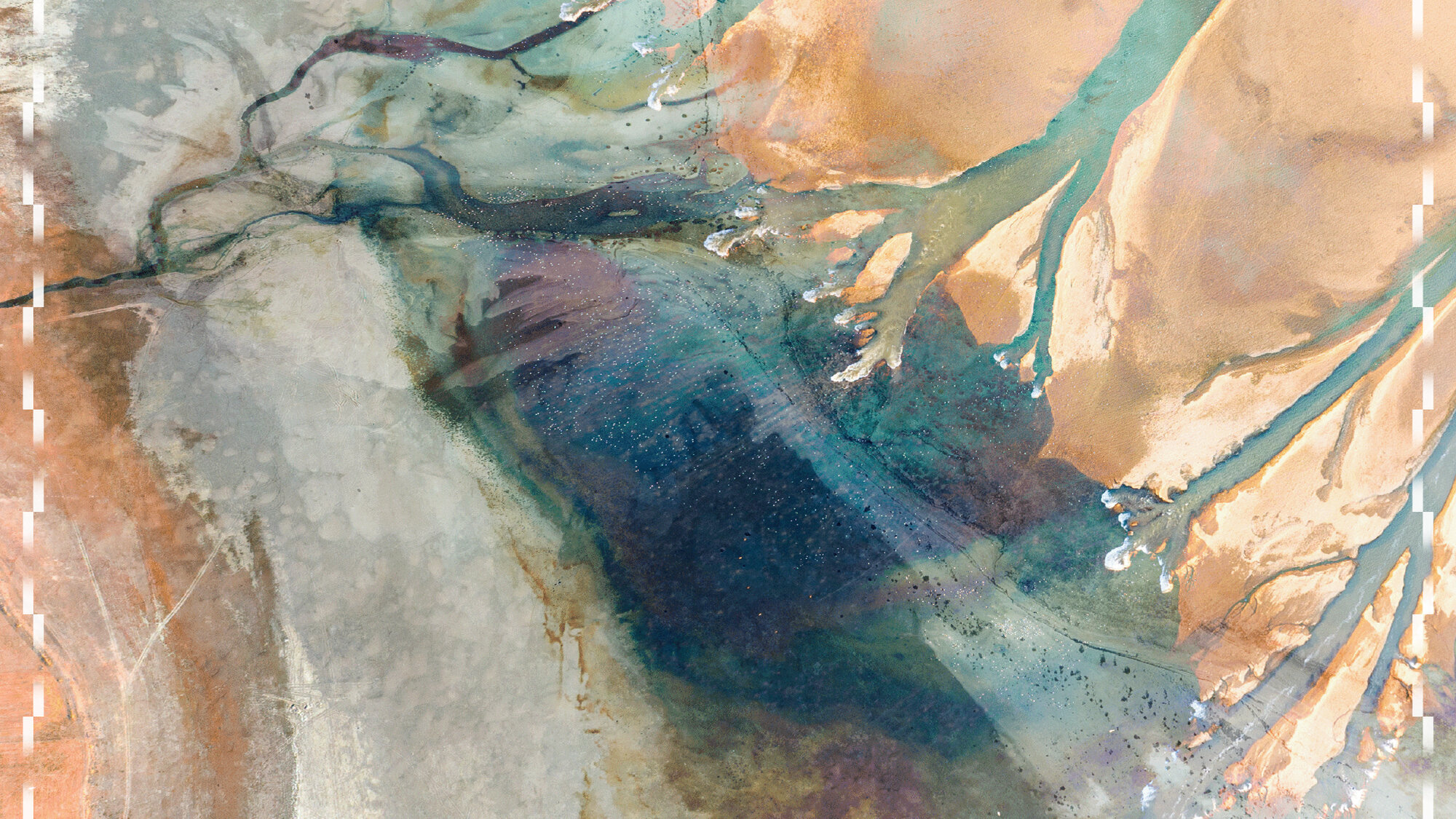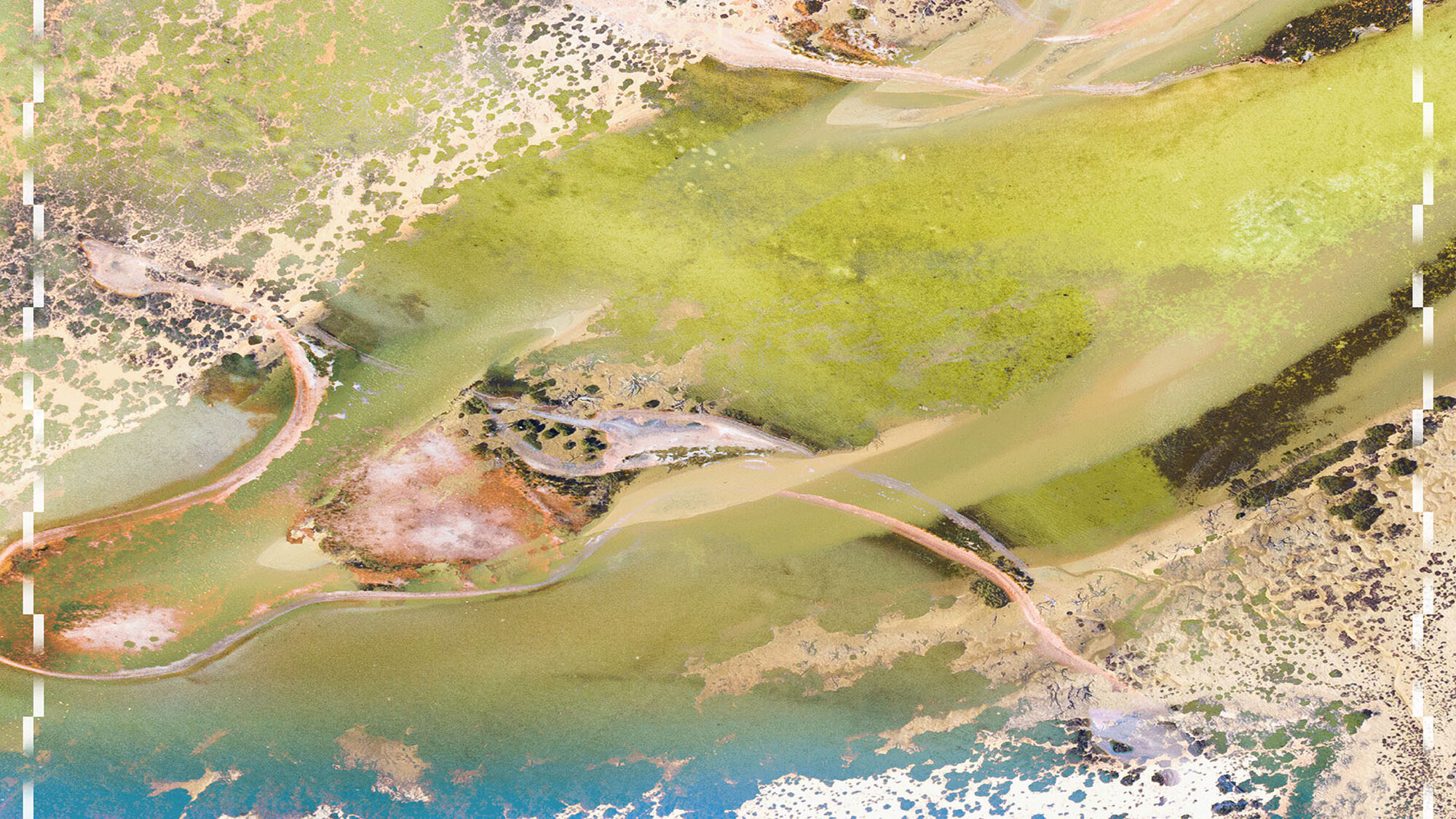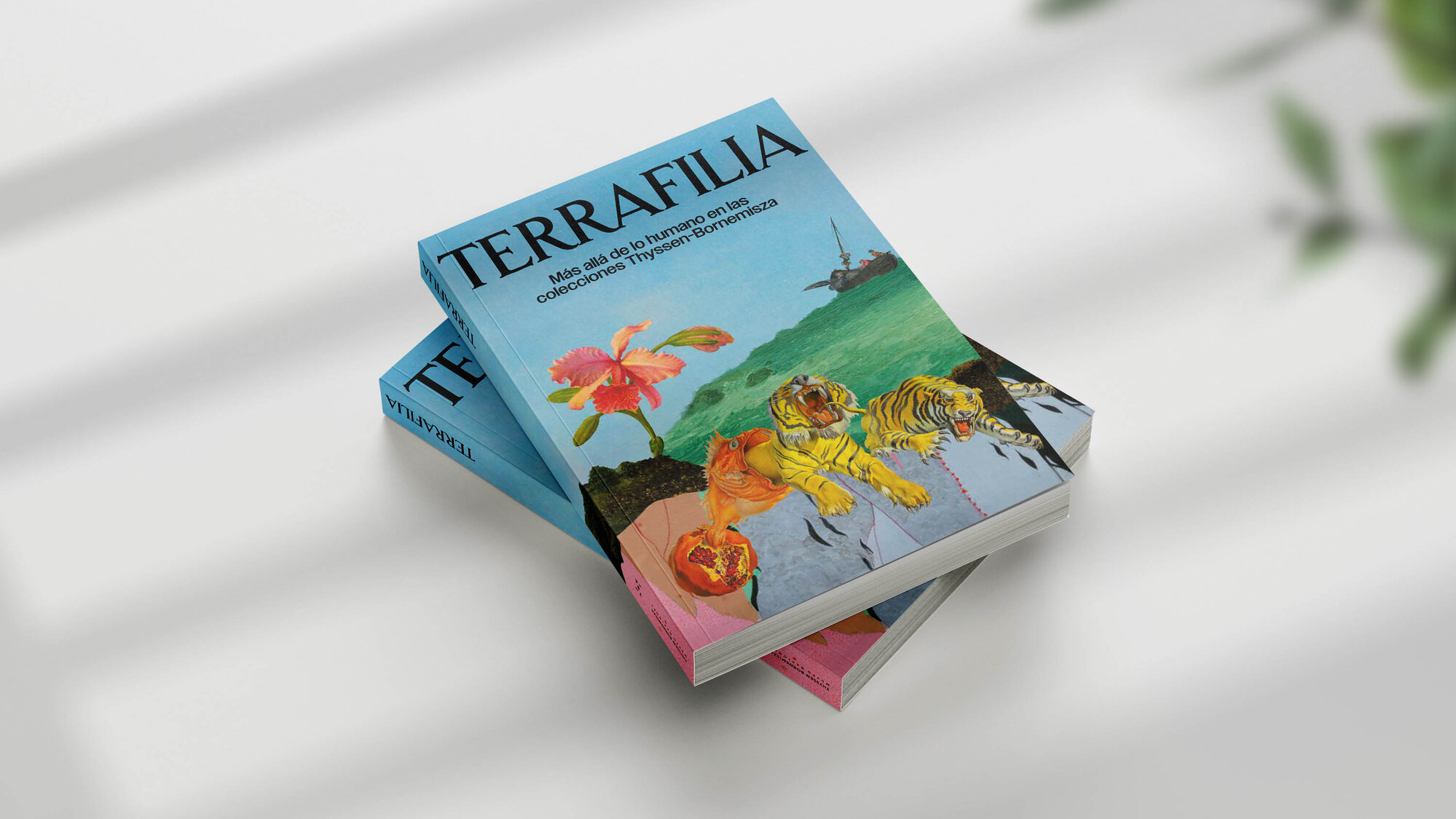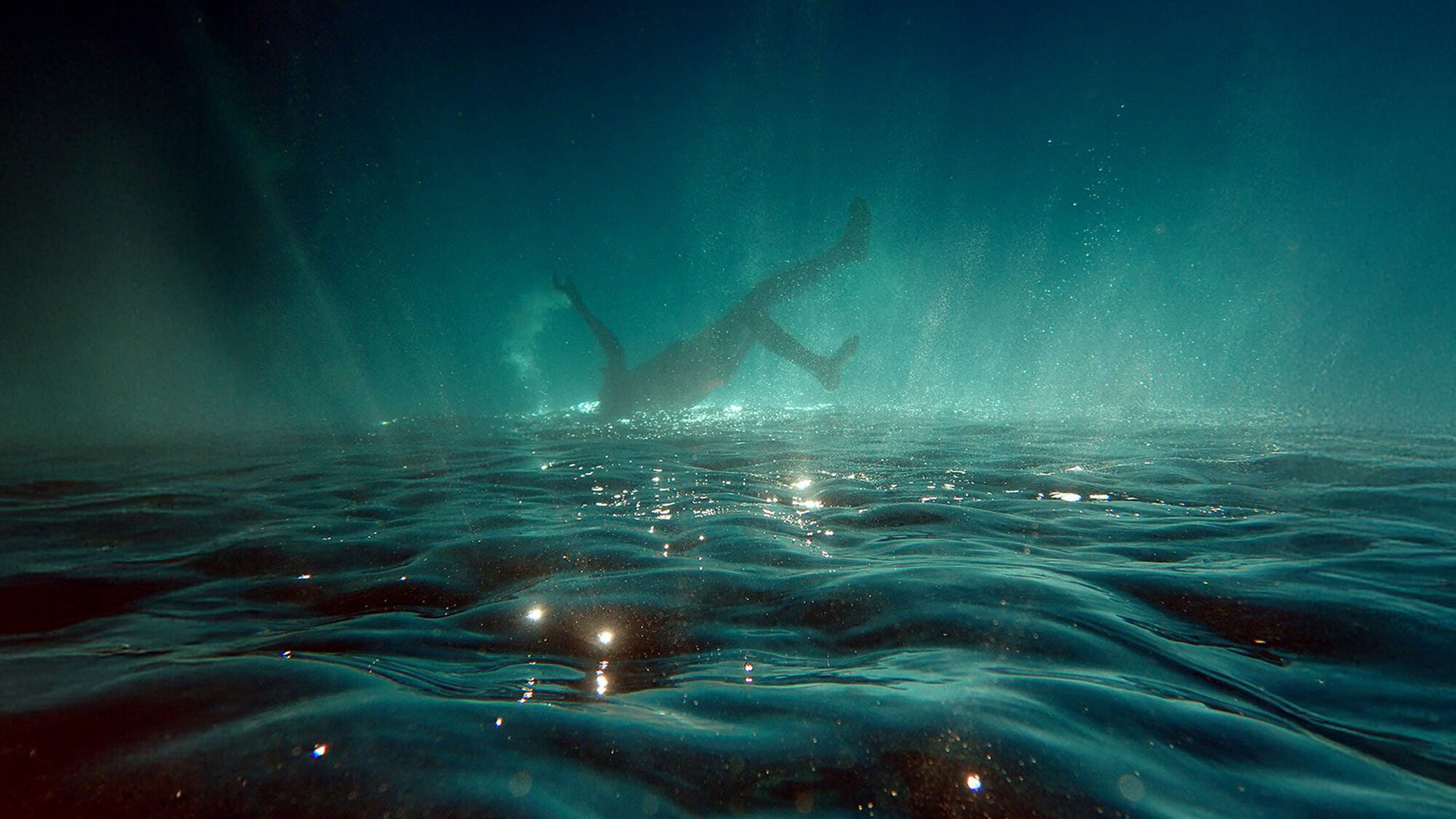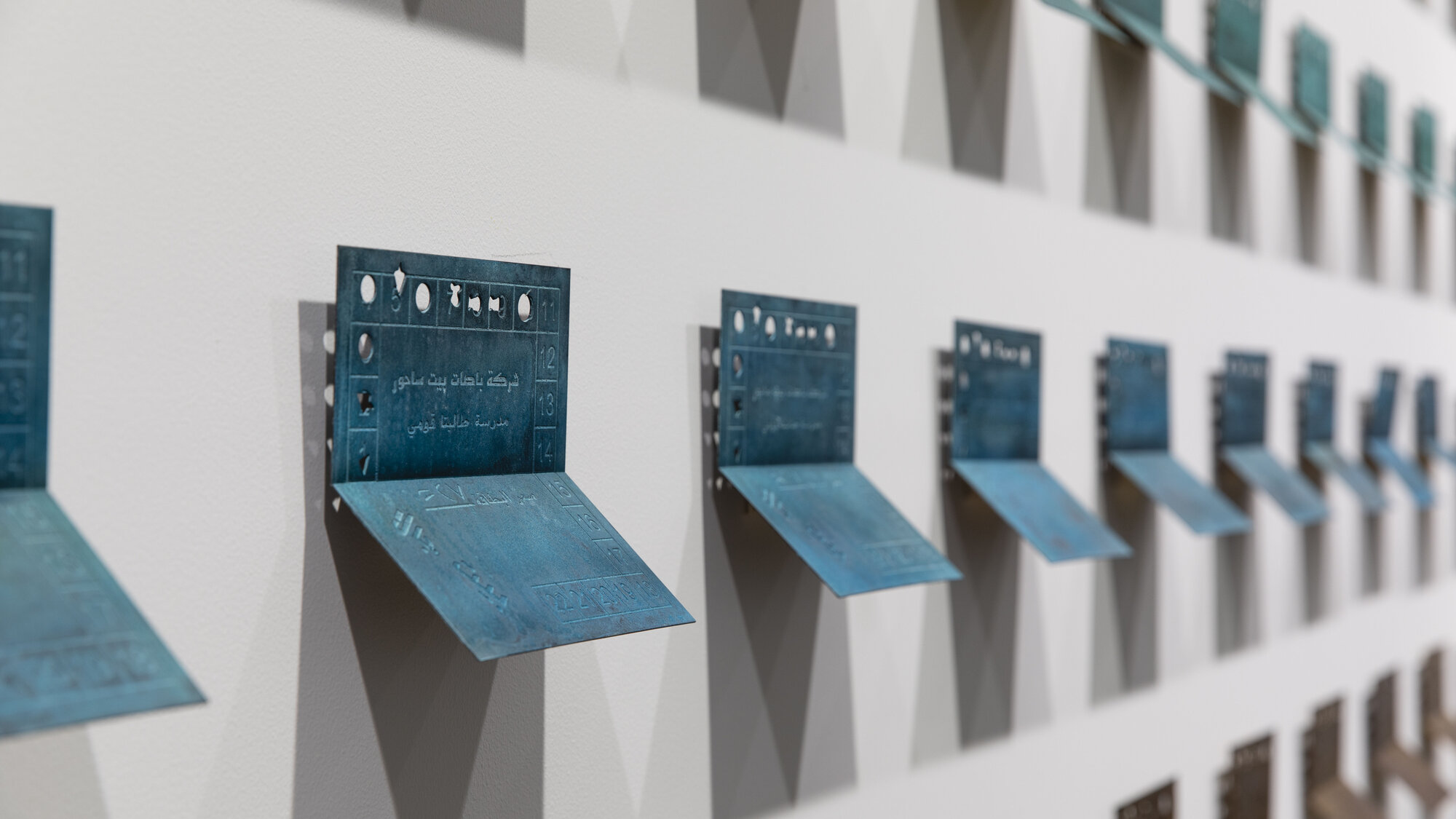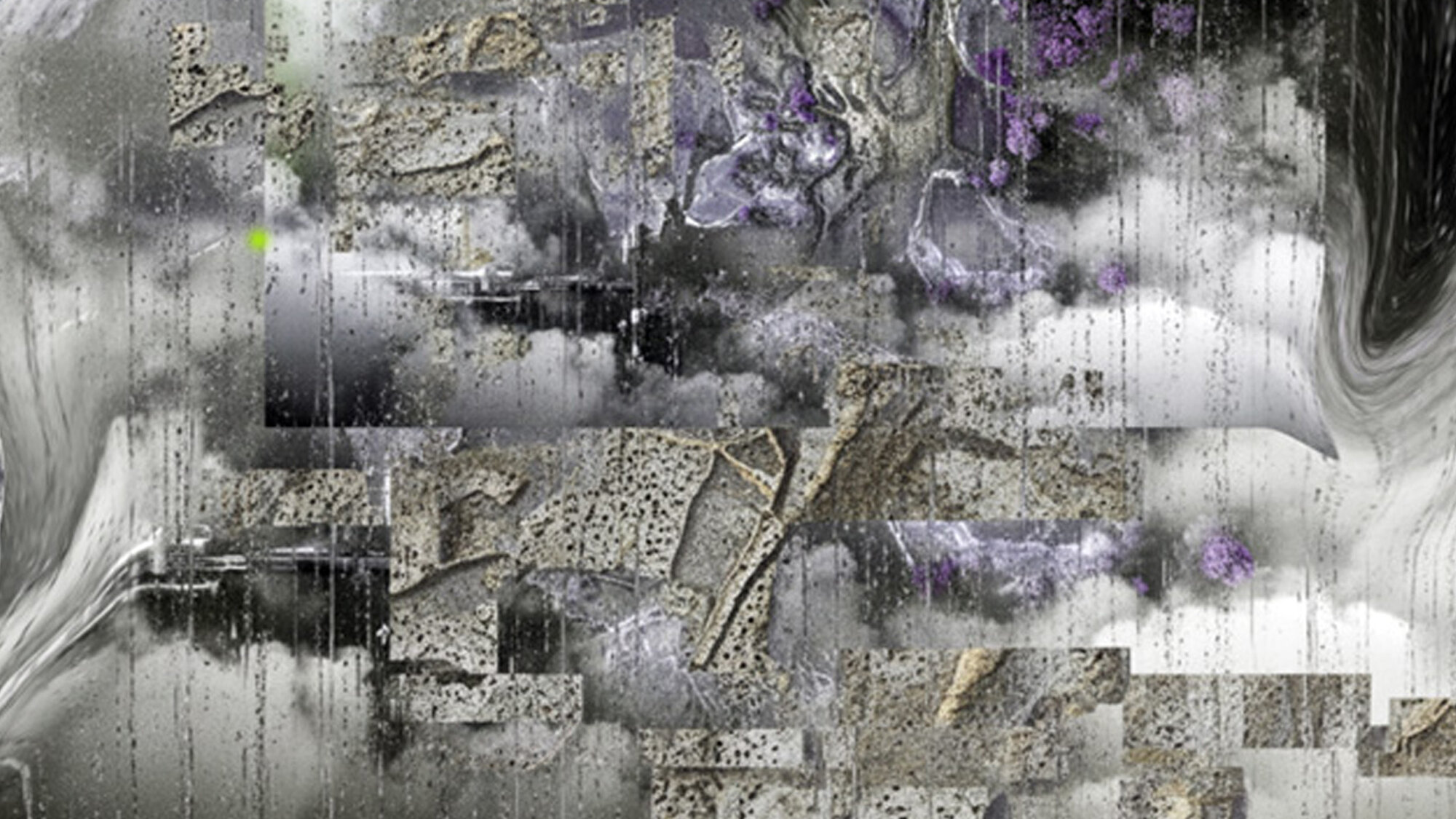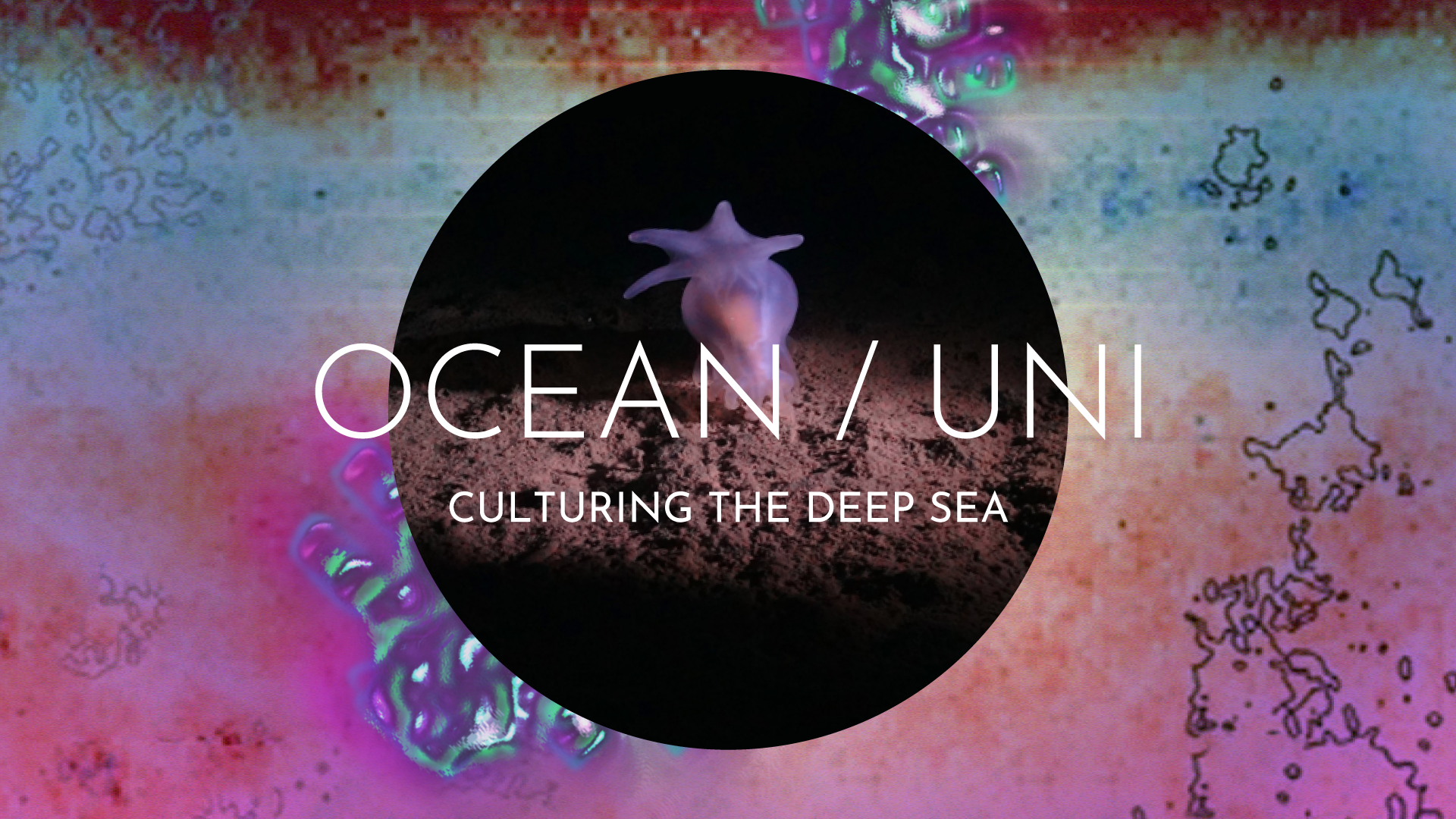Between October and December 2023, OCEAN / UNI will dive towards the deep sea, adopting a cross-disciplinary lens to think from the furthest spaces of our planet’s expansive bodies of water.
By interrogating the idea of the deep sea as a commons and a space of shared value, easily translatable to economic wealth and benefits, the Fall semester works to re-state the deep sea as a living reality saturated with meaning and foundational to life itself: as a metaphor for the unknown, a place where exciting creatures flourish and meaning sprouts, now critically threatened by the opaque shadow of deep-sea mining. This new exploration and mining frontier is a horizontal one, thousands of meters below the sea surface and portrayed by extractivists as a “potato field” or “underwater desert”, ready to be harvested for the common good. Yet, the deep ocean and the seabed are rich with diverse and unknown life, thriving around vents, ridges, plains, and seamounts.
The more-than-human eyes, arms, and minds entangled within deep-sea industry are not only creaturely, but robotic: unmanned remote controlled vehicles ready to thresh the seabed, or even handpick individual nodules.[1] The mining industry presents this post-human vision as less invasive and technologically infallible, plunging to the deepest depths to reach the greatest entrepreneurial heights. Despite the continued innovation of new technologies, the resourcification[2] of the deep sea only replicates centuries-old modes and models of exploitation within a “very particular vision of planetary management”, with the Ocean at the forefront of this fight for a new approach to ecosystem management and planetary governance at large...[3]
Framing the fight against this renewed extractivist assault upon one of the four global commons from an interdisciplinary, culture-led approach, we want to assemble a diverse front that takes an affective, community-led approach to care and custodianship of the deep seas. Cultural relations with the deep seabed make it so much more than a “common heritage of mankind” to be partitioned and extracted from to provide short-term profit for a small number of humans. What would it take to maintain a thriving deep sea and seabed, and ultimately a future in which the Earth remains a liveable planet for allkind?
Through a series of 5 live online lectures and interactive “activations” held with diverse speakers—from scientists to artists, from lawyers and policymakers to activists and Indigenous leaders—Culturing the Deep Sea: Towards a common heritage for allkind aims to think around the constructions and representations that shape human–Ocean relations, and look to art and critical thinking to raise alternatives. Through collective unlearning as a radical act of deep ocean literacy, we hope to empower ourselves as a community to intervene in dynamic decision-making environments around deep-sea mining that proceed alongside the program.
METHODOLOGYCulturing the Deep Sea, TBA21–Academy’s program dedicated to exploring the narratives and intricacies around deep-sea mining, is expanding into
two cycles of OCEAN / UNI developed in deep dialogue with artist and curator
Taloi Havini. At the same time, our online learning initiative turns attention to TBA21–Academy’s ongoing ocean advocacy at and around the
International Seabed Authority. Through live sessions and focussed workshops, our curriculum approaches the looming threat of
deep-sea mining from a perspective that accounts for local communities in oceanic regions—specifically Pacific and Caribbean—and more-than-human life at the seabed and within the water column.
To do so, we will adopt a place-based approach, aiming to “ground” both the concept of the deep sea and the speculative nature of deep-sea mining which, as of yet, remains fictional. By
focussing on one prospective mining site each session, the discussion crosses oceans and continents to hear from those on the front lines: of ecological destruction, of regulation, and knowledge of the deep ocean. Session guests unfold a theme linked to the history or situation around that site, forming a chorus of voices and building a body of critical knowledge.
Inspired by artist and curator Taloi Havini’s methodology of call and response, Latai Taumoepeau’s artistic and activist practice, and the central importance of listening and dialoguing in Pacific cultures. In
Fall 2023 we will focus on narrative- and strategy-building, centering on scientific analysis and ongoing political discourse. Flanking the main sessions, we will develop a number of separate moments for communal study and discussion, making space for
activations developed to critically reflect on deep sea and deep-sea mining. In
Spring 2024, we will open up to activism and resistance strategies, especially in the Pacific, aiming to bring strength to an existing global network. This process will be enriched by a series of activations developed in collaboration with
Tactical Tech, aiming to collectively shape tools to create a meaningful sense of agency, engage and influence the decision making process related to extractivism and ecology.
PROGRAM
The program begins with a Prologue on October 11, 2023, which introduces the ideas and approaches of the curriculum. These are unfolded through five overarching themes presented during the main sessions, which take place every other Wednesday. Five corresponding “activations” (small interactive workshops in which participants are invited to engage and respond) are offered to deepen the understanding of stories, case studies, and methodologies from the main sessions. For the first semester, the activations will revolve around two formats: reading groups around specifically relevant texts, and workshops aimed to develop a critical discourse around the deep sea. The program will be announced in September, and due to limited capacity, the registrations will open on the ocean comm/uni/ty one week in advance.
Radio Show "The Anglerfish Chronicles"
Airing this winter on Ocean-Archive.org.
Does the ocean cry with us when we belly-flop on her surface? Can you imagine what it feels like to be stuck in a research vessel, plunging to the darkest depths, taking snapshots of the deep sea? Is it scary to be immersed in a bathysphere five km under the sea surface? Why are deep sea creatures so mysteriously figured? Can we really mine the deep sea? So many questions with intriguing answers, and who wouldn't want to hear the exciting stories of the ocean-loving folks able to answer our curiosities? Radio Captain Khadija Stewart will set sail between islands and seas, coral reefs and algal blooms, finding the right people to engage in conversations to shed light on how to connect with the extensive deep ocean—the common heritage of allkind. Together, we explore the world through a deep ocean lens and uncover the myths, wonders and threats of the abyss.
The goal of "The Anglerfish Chronicles" is to complement the live sessions and help spread a sense of love for the Deep Sea with a format that will air on the internet over the holiday season and remain a shareable trace of these conversations for future use.
WHO CAN PARTICIPATE & REGISTRATIONThe program is intended for anyone eager to deepen their relations with the ecological, political, aesthetic, ethical, and scientific knowledges around the realities and futures of the Ocean. Lectures will be held in English, so a good listening and speaking level is recommended to ensure meaningful exchange.
Participants are required to register for their attendance to the program online via Zoom.You are welcome to register in advance for more than one session. If you attend five sessions or more, you will receive an official certificate of attendance.
REGISTRATION FORM
HERE
DEEP OCEAN LITERACY The methodologies of OCEAN / UNI aim to create spaces of collaborative work, coalitional thinking,[4] and solidarity to generate new pedagogies and ways of researching that go beyond words, grown from feeling. This sensitivity to the oceanic elaborates a critical ocean literacy that extends a factual comprehension of the mutual influence between us and the Ocean, moving deeper into thinking through the Ocean.
Performed individually and collectively, such acts can blend in different kinds of knowledge and release us from coded connections to wander through the Ocean’s rhythms, poetry, and biology; through these fluid processes of hybridization we might come to grasp and communicate our ecological crisis.
Learning through sensing, familiarity, and the body can ignite joy and healing, can grow affinity with otherness. Telling stories—and coming together to listen—can access cosmic timescales, can weave motives and planetary movements into the spaces between data points. How do the ways in which we talk to each other, gather, listen, and learn matter and create kinship? By welcoming worldviews originating in different densities and humidities, latitudes and altitudes, perhaps a new critical perspective could arise, one that can tell the story of the fragile interconnectedness of our biosphere, empowering humans and nonhumans to wade toward a space of balanced coexistence.
Imagine the deep sea. It seems not to move, to breathe, to live in the way we know under the Sun. The seeming strangeness of the ‘deep sea’, typically defined as more than 200 meters deep, and the thickly mediated representations of its scenes render it hard to relate to.
What’s at stake on the seabed, Earth’s last extractive frontier? In the open ocean, which creatures thrive throughout the water column? How can we speak to their livelihoods and connect our concerns for living in common?
Learning about the deep sea is the strongest tool we have to protect it: becoming ‘ocean literate’ is not just a way to gather facts, but to gather power as an ocean citizen. As part of the preparation for the upcoming semester, you can already now, dive in this available
collection on Ocean-Archive.org dedicated to Deep Ocean Literacy. It is meant as a research tool, open to your additions, on scientific exploration of the deep ocean; advocacy for deep ocean sustainability; extractive industries and activities; biodiversity at the seabed and the water column; and Pacific methodologies.
ABOUT OCEAN / UNI
OCEAN / UNI is an initiative dedicated to art, activism,and science that invites fluid thinking with the Ocean as a way to move beyond the binaries of land and sea. OCEAN / UNI's curriculum provides students, researchers, and the public access to wide-ranging ideas and explorations through regular live sessions, reading groups, small-scale workshops or activations, and other online material, free and accessible to everyone on Ocean-Archive.org
Aiming to complement and enhance land-based understanding of the Earth, it covers a wide range of ecological, political, aesthetic, ethical, and scientific topics around the realities and futures of the Ocean.
RELATED OPPORTUNITIES FOR ocean comm/uni/ty MEMBERSTogether with the online offering of OCEAN / UNI: Culturing the Deep Sea, we will be developing
a two-day in-person workshop at the Porto Design Biennale. On
November 24 and 25, we will gather on the shores of the Atlantic Ocean for a hackathon-style intensive workshop led by mentors Patricia Esquete (University of Aveiro) and Alison Neilson (University of Coimbra) together with the OCEAN / UNI team. In the two days, we will intensely brainstorm and develop projects that will catalyze community engagement and spread knowledge and care for the Deep Sea, which will ultimately be presented in person and online and will have the potential to be developed in the following months. The
Open Call, released with Porto Design Biennale, will be available
in late September HERE.
This workshop is developed as a satellite program for Porto Design Biennale's 2023 edition, "Being Water", and is supported by Câmara Municipal do Porto, Câmara.
Call for Ocean-Archive.org digital resident 2023/24: Thinking with the Deep OceanThe upcoming semesters of OCEAN / UNI will adopt a cross-disciplinary lens to think from the remotest spaces of our expansive body of water. Through unlearning as a radical act of ocean literacy, we hope to empower ourselves as a community to intervene in dynamic decision-making environments around deep-sea mining that proceed alongside the program.
The Ocean-Archive.org
Digital Residency 2023/24 is thought to run alongside OCEAN / UNI, as an opportunity to realise a participatory project around the deep sea, exploring modes of ‘deep ocean literacy’ rooted in artistic and design research approaches.
The Digital Resident will engage the ocean comm/uni/ty through live moments or calls for collaboration, producing a final work to be presented within Ocean-Archive.org digital ecosystem.
We encourage projects that cross geographies and traditional disciplines to ask fresh questions about value, representations and voices of the deep.
You can find more details and conditions
HERE. Submission deadline is October 1, 2023.
PROGRAM
Guests and detailed program to be announced in September 2023.
Wednesday, October 11, 6 pm CET
Session 1:
Prologue: Towards a common heritage for allkind #Ocean care #justice #governance #action #Pacific worldview #hydrofeminism
Keynote speaker: Susan Reid, Environmental philosopher, writer, artist, and ocean lawyer. Collaborating researcher with the University of Sydney's 'Extracting the Ocean' project.
October 14–15, 2023
Special moment: Deep Ocean Listening by Lindsay Dawn Dobbin and David Barclay is streaming from Nocturne Festival, Halifax, Canada! Find more details on
this page. This project will interact with our semester on Activation 3, November 15, 2023.
Activation 1, October 18, 2023
A reading group centered on
“Blue Legalities: The Laws and Life of the Sea”, ed. Irus Braverman, Elizabeth R. Johnson
Wednesday, October 25, 6 pm CET
Session 2:
A Remote Commons: Deep-sea mining and redesigning common heritage#Deep-sea mining, #commons, #common heritage of humankind, #extractivism
Speakers: Nabil Ahmed, professor at Trondheim Academy of Fine Arts, NTNU, founder of INTERPRT, a research and design studio dedicated to environmental justice advocacy;
Elizabeth M. DeLoughrey, professor at UCLA in the English Department and the Institute of the Environment and Sustainability.
Moderation: Pietro Consolandi
Activation 2, November 1, 2023:
Shaping the Invisible, videomaking and montage workshop with Lara Garcia Reyne: filmmaker and editor, her collaborations include work with John Akonfrah, Lilian Lijn and institutions like Tate Media and the Hayward Gallery.
Wednesday, November 8, 6 pm CET
Session 3:
Washing the Sea in Green and Blue: Mineral solutions for energy transition?#Greenwashing #bluewashing #energy #extractivism #degrowth #inequality
Speakers: Ignacio Acosta, Artist and Researcher, Royal College of Arts London, post-doctoral fellow at Centre for Multidisciplinary Studies on Racism (CEMFOR) Uppsala University, Sweden;
Sarah Vanden Eede, Ocean policy officer at WWF-Belgium
Moderation: Pietro Consolandi
Activation 3, November 15, 2023
Deep Ocean Listening with Lindsay Dawn Dobbin (artist) and David Barclay (acoustic oceanographer) based on listening, recording and sound art. See more information about their project
here.
Wednesday, November 22 , 6 pm CET
Session 4:
Deep Theater: The International Seabed Authority as a performative space#International Seabed Authority #ocean governance #planetary politics
Speakers: Pradeep Singh, an expert on ocean governance, the law of the sea, environmental law, climate policy and public international law, Research Institute for Sustainability Potsdam;
Daniel Caceres Bartra, founder of the Sustainable Ocean Alliance hub in Peru and co-founder of the Taking Care of the Ocean collective;
Quack Pirihi, Takatāpui activist, Māori advocate and creator.
Moderation: Mekhala Dave and Khadija Stewart
November 24–26, 2023
Special moment: Live workshop at Porto Design Biennale, led by Patricia Esquete and Alison Neilson
Activation 4, November 29, 2023
Wednesday, December 6, 6 pm CET
Session 5:
Ocean as Library of Ideas: Complex systems at sea#Marine genetic resources #complex systems #deep-sea imagination #Pacific worldviews
Speakers: Stacy Alaimo, Professor and Director of Graduate Studies for English, Core Faculty Member for Environmental Studies, University of Oregon;
Muriel Rabone, Marine Genetic Resources Co-lead, Deep Ocean Stewardship Initiative; Data and Sample Coordinator Natural History Museum London.
Moderation: Fiona Middleton
Activation, December 13, 2023
In this activation, we will regroup with the participants of the Porto Design Biennale workshop, presenting the projects and further developing them, opening the floor for community members to join.
